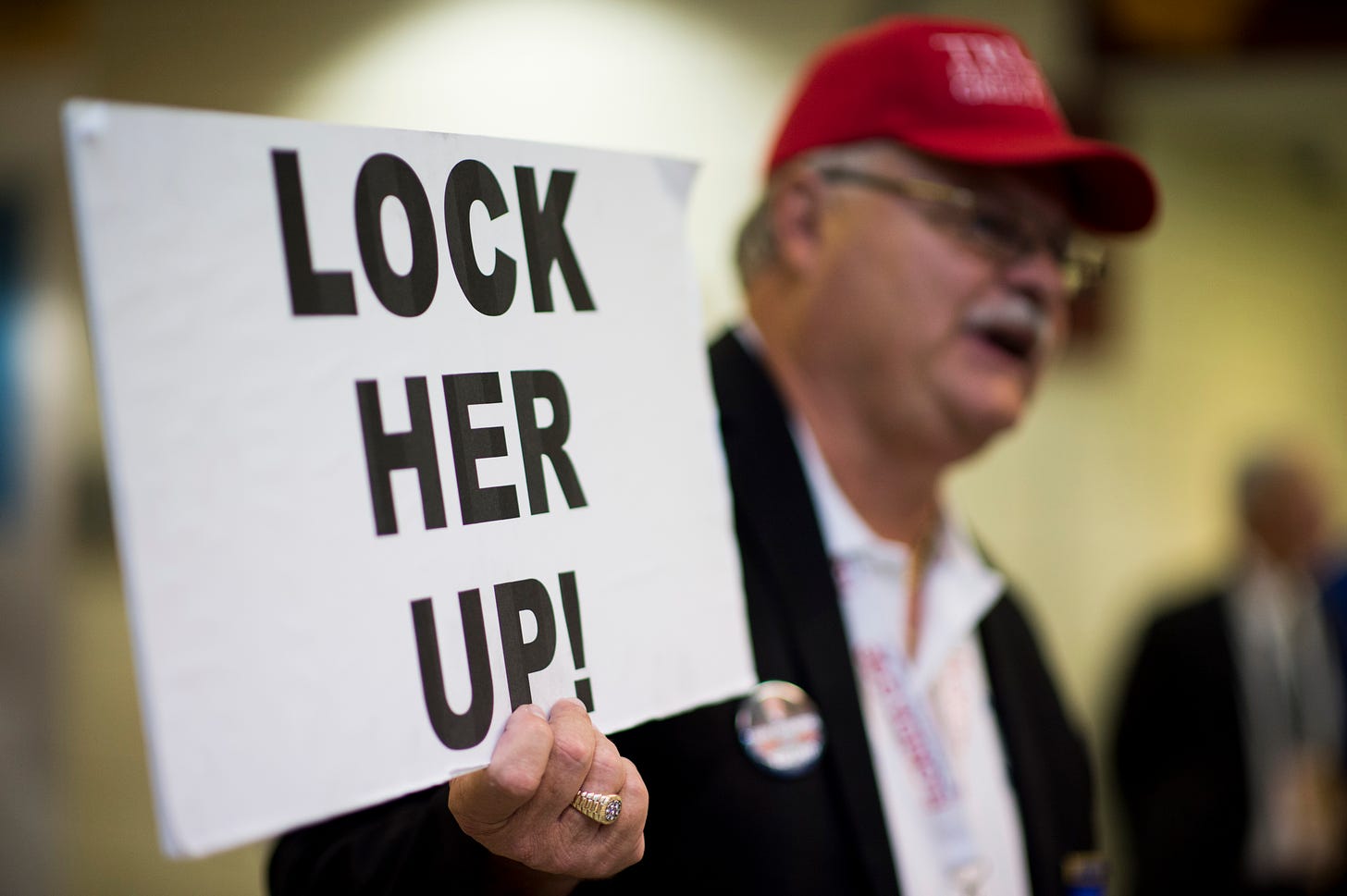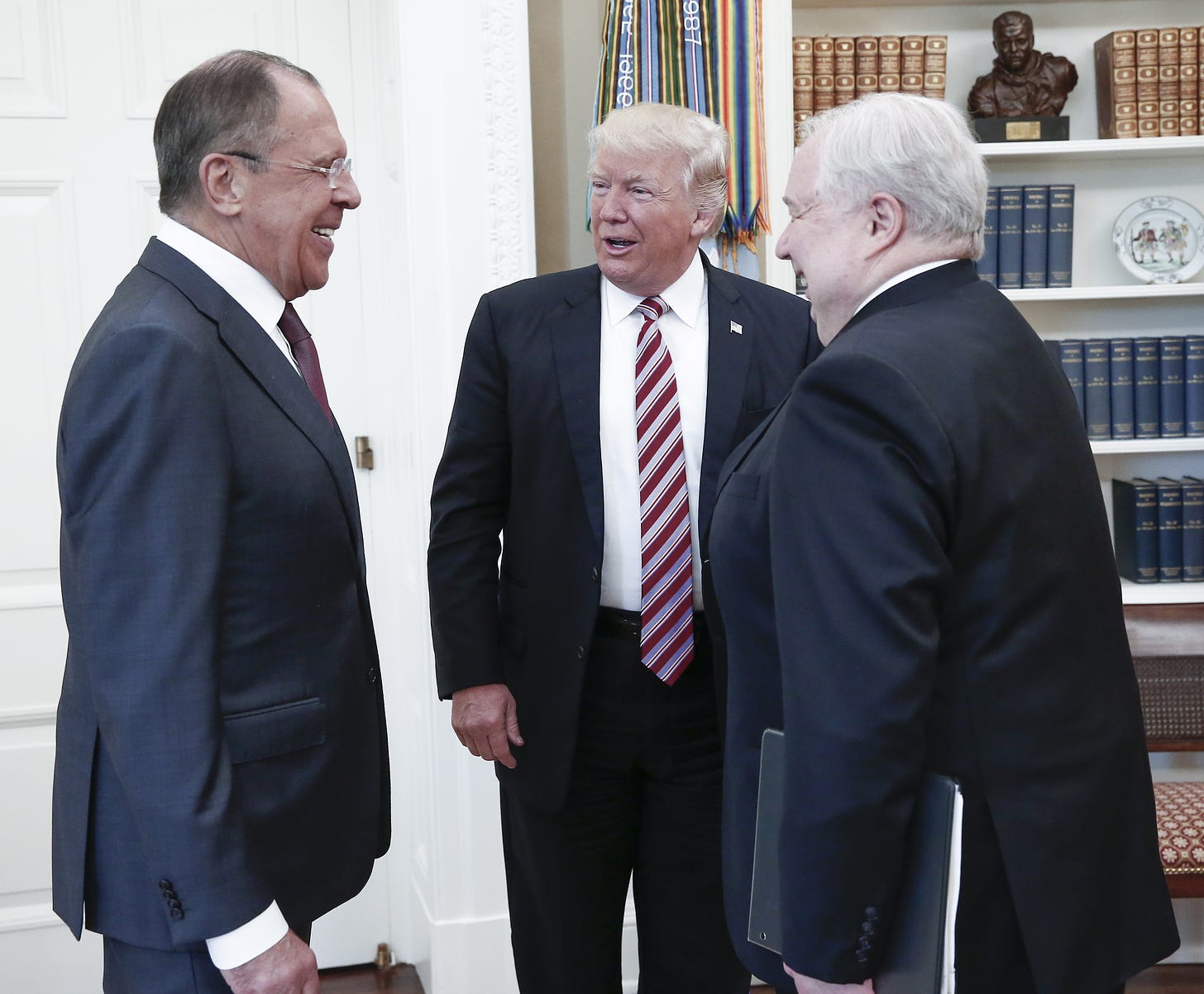What happens to a bipartisan democracy, and its media landscape, when one of the two parties turns toward autocracy? This is the drama we are now living through in America. Half the political class, and the press, operate within a democratic framework, while the other half and its media allies increasingly embrace extremist politics. Understanding this asymmetrical political and media environment is essential to a realistic appraisal of where American politics may be headed in the coming years.
The Republican Party, with its history of suppressing voting rights, had already become "an insurgent outlier" in politics when Donald Trump came on the scene. During the 2016 election, the GOP modeled its abandonment of ideals essential to bipartisan rule, such as mutual tolerance. Republican officials didn't just contest the ideas of Democratic presidential contender Hillary Clinton, but also her right to circulate in society ("Lock her up" became the favorite chant at Trump rallies) and even exist (state GOP representative Al Baldasaro (R-NH) called for Clinton's execution, and Trump suggested that "Second Amendment People" could act against her).

Once Trump took office, the GOP presentation of Democratic politicians as criminal elements accelerated, to the benefit of conspiracy theories like QAnon, which claims that a cabal of pedophilic Democrats - Clinton and President Joe Biden among them - seeks to control politics and the media. By 2019, Carl Bernstein observed that Trump's skill at creating a "cold civil war" also fed Republican desires "to see the other side wiped out."
As evidence mounted of the turn to autocratic methods (Russian interference in the 2016 election, the use of public office to promote his business brand, a disinformation barrage that would amount to over 30,000 false or misleading claims) so did hopes that Trump would somehow become presidential- that term denoting a head of state in the democratic vein - or "pivot" to become a bipartisan leader.

Instead, the asymmetry between the rhetoric and actions of the two parties increased as Trump consolidated his hold over the GOP. By 2020, after Trump weathered impeachment by the House (and acquittal by the Senate), the right to air dissenting views within the GOP had also diminished. By 2021, Republicans like Rep. Peter Meijer (R-Mich.), who voted to impeach Trump, had to buy body armor due to threats.
The media bore the brunt of the conflicts generated by an autocratic leader and party operating within a democracy. Building on longtime Republican hostility to "mainstream media", Trump worked overtime to delegitimize and demonize the press. That's why journalists became, like Clinton, an entity to be "locked up," (Trump asked FBI Director James Comey about jailing journalists). It's why the president complimented then-Rep. Greg Gianforte (R-Montana) for his 2017 body-slamming of Guardian reporter Ben Jacobs, saying “That’s my kind of guy." And it's why the press became hate objects, threatened at Trump rallies and assaulted or detained by police as they covered protests, as during the Black Lives Matter demonstrations in summer 2020.
With democracy long the country's default mode, even journalists who had reported on authoritarians abroad may not have seen illiberal politics as a danger in the U.S.. Media outlets considered Trump and his GOP allies within the framework of politics (mostly) as usual. They hired fact-checkers to debunk the president's lies, but continued to air all sides of the stories they reported, drawing criticism for amplifying disinformation and extremist points of view.
As Jay Rosen argues, media outlets stuck in one frame - democracy - continued to observe rituals that the Trump administration had appropriated for autocratic ends. White House press conferences now disseminated disinformation and modeled hostility to the press. Some journalists who dropped the pretense and called out the autocratic attitudes had their press passes revoked, as happened to CNN White House correspondent Jim Acosta in 2018 (his pass was restored after CNN sued the Trump administration).
The Jan. 6 assault on the Capitol made it more difficult to see Trump and the GOP as operating within democratic boundaries. Yet the custom of treating the GOP like a conventional entity, rather than as a rogue party, persists. Numerous television networks allowed GOP officials air time to reiterate the "big lie" used to justify the coup attempt - that Trump won the election.
It's unsurprising that Democrats find no bipartisan resolve for an independent probe of Jan. 6. The GOP no longer seems to recognize the right of Democratic or Republican lawmakers to exercise their Constitutional duties and rights without fearing for their lives. The strategic silence of former Vice-President Mike Pence, who escaped a mob that wanted to hang him for allowing the Electoral College certification of Biden's victory to proceed, speaks volumes. In today's GOP, standing up for the rule of law could mean political ruin.
"Democracy requires consensus," says Biden, who ran for office as a bridge-builder. Presenting himself as the president of all Americans, he emphasizes that the large-scale measures he's introducing, like the $1.9 trillion Covid relief bill, are intended to benefit a large swath of the population. Biden is playing a long game, but the "one America" he evoked in October 2020 can seem elusive. The sooner we accept the hard truth that the GOP has turned away from consensus politics and is on a path to some form of autocracy, the better prepared we will be to help Republican voters realize all that they stand to lose.




This today from The Bulwark (one of the few comparatively sane conservative sites I follow :)
"Daniel Ziblatt, in Conservative Parties and the Birth of Democracy, examined the historical record for lessons on why some countries successfully managed to transition to democracy while others lapsed into authoritarianism. The predominant variable he identified was the posture of conservative parties at critical moments. These parties typically represent status quo interests. When they think they have a shot at securing these interests via democratic means—like the British Tories in the late-nineteenth century—they buy into liberal democracy. When they believe these interests will lose out to the forward march of leftist reform or revolution, they jettison liberal democracy, as happened in Germany and Italy after World War I." 😶
"Heeding the Lessons of Weimar"
https://thebulwark.com/heeding-the-lessons-of-weimar/
Growing up in an immediate post WWII social/christian democrat environment in Western Europe, America was naturally seen as the leader and protector of the free Democracy. Around Xmas 2015, when we were visiting friends in East Texas I somehow got drawn into a televised GOP Presidential primary debate......I was shocked what I heard from the candidates, in particular Trump , but even more so from the comments and the support for his extreme views in the audience. Hearing Trump speak for the first time send shivers of fear down my spine......these were the things the generation of my parents and older siblings fought against. I could not believe how people I had known and worked with all over the world for a long time could even think of supporting this. Deep the hatred versus Obama, as a black and a democrat , appeared to be a key driver . I must have had a huge blind spot. I have been following American politics in more details ever since and it continues to make make me even more concerned. Your essay is spot on. Hard work will be required to ensure democracy survives in US (and other countries). Essays like this are essential to succeed.